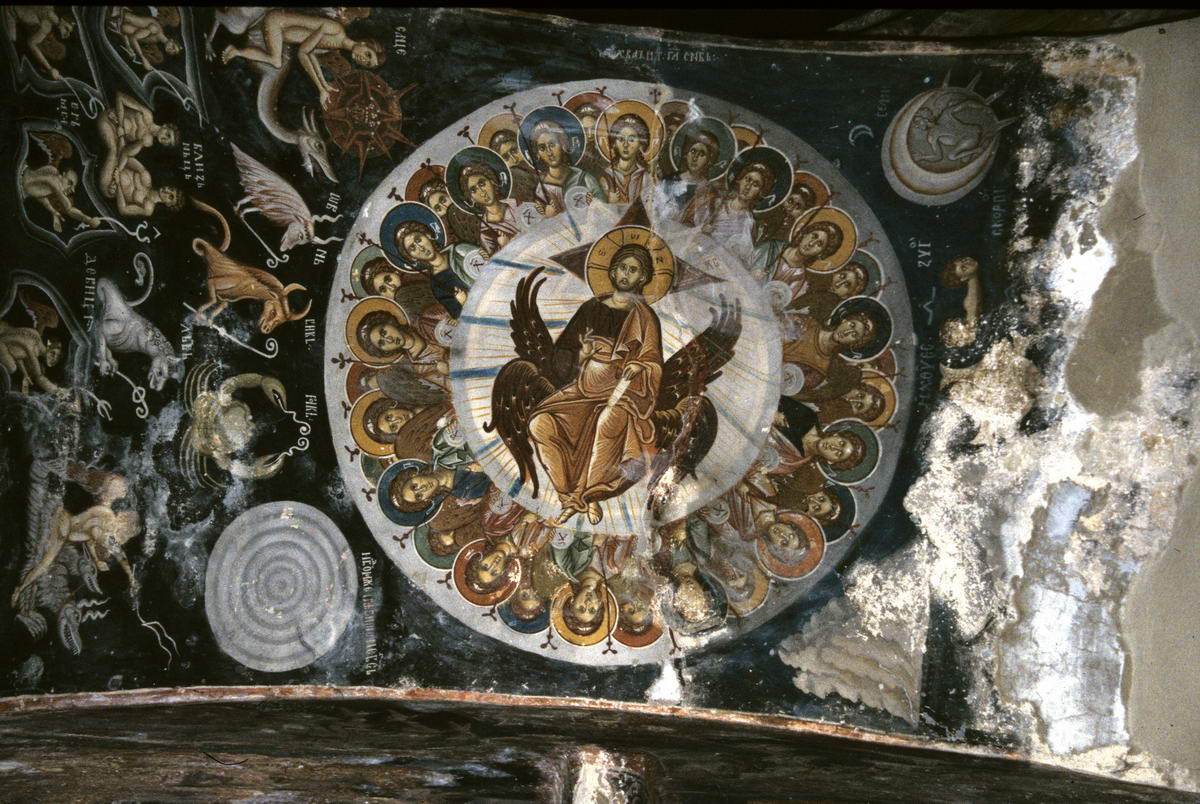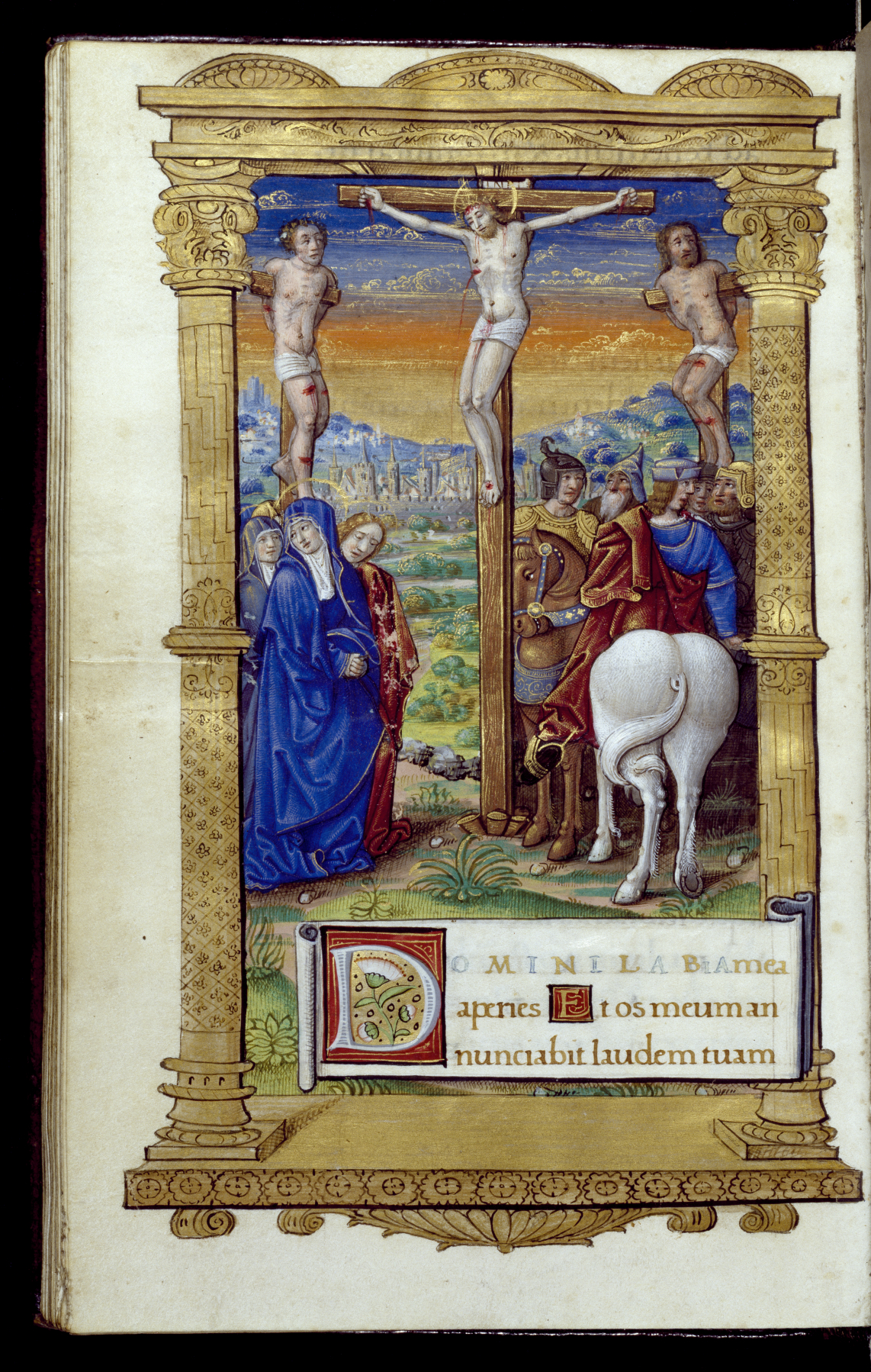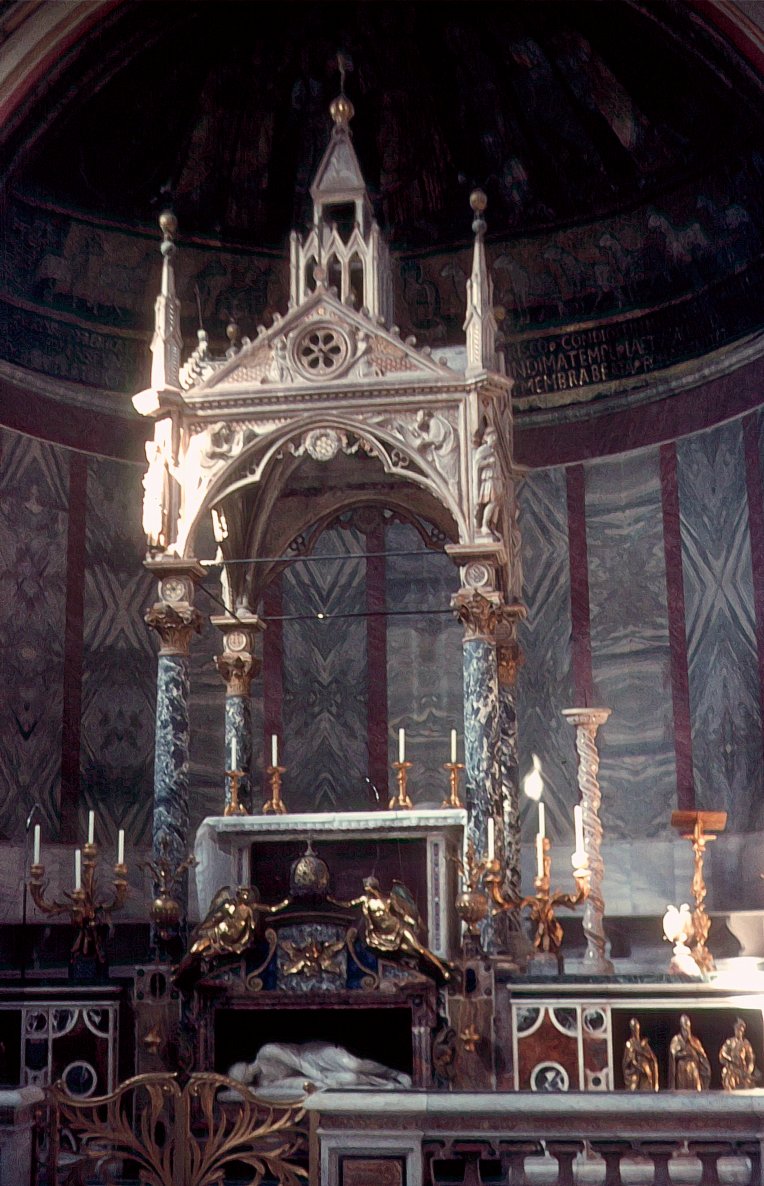|
Laudate Psalms
The Laudate Psalms are the psalms numbered 148, 149, and 150, traditionally sung all together as one psalm in the canonical hours, most particularly the hour of Lauds, also called "Morning Prayer", which derives its name from these psalms. The psalms themselves are named from the Latin word ''laudate'', or "praise ye", which begins psalms 148 and 150. At Lauds, according to the Roman Rite, they were sung together following the canticle under one antiphon and under one Gloria Patri until the reforms instituted by St. Pius X Pope Pius X ( it, Pio X; born Giuseppe Melchiorre Sarto; 2 June 1835 – 20 August 1914) was head of the Catholic Church from 4 August 1903 to his death in August 1914. Pius X is known for vigorously opposing modernist interpretations of C ... in 1911.The New Liturgical Movement See also * Pesukei dezimra, a section of the Jewish morning prayer which contains the same psalms References Psalms {{bible-stub ... [...More Info...] [...Related Items...] OR: [Wikipedia] [Google] [Baidu] |
Psalms
The Book of Psalms ( or ; he, תְּהִלִּים, , lit. "praises"), also known as the Psalms, or the Psalter, is the first book of the ("Writings"), the third section of the Tanakh, and a book of the Old Testament. The title is derived from the Greek translation, (), meaning "instrumental music" and, by extension, "the words accompanying the music". The book is an anthology of individual Hebrew religious hymns, with 150 in the Jewish and Western Christian tradition and more in the Eastern Christian churches. Many are linked to the name of David, but modern mainstream scholarship rejects his authorship, instead attributing the composition of the psalms to various authors writing between the 9th and 5th centuries BC. In the Quran, the Arabic word ‘Zabur’ is used for the Psalms of David in the Hebrew Bible. Structure Benedictions The Book of Psalms is divided into five sections, each closing with a doxology (i.e., a benediction). These divisions were probably intro ... [...More Info...] [...Related Items...] OR: [Wikipedia] [Google] [Baidu] |
Psalm 148
Psalm 148 is the 148th psalm of the Book of Psalms, beginning in English in the King James Version: "Praise ye the Lord from the heavens". In Latin, it is known as "Laudate Dominum de caelis". The psalm is one of the Laudate psalms. Old Testament scholars have also classified it as a creation psalm and a wisdom psalm. The psalm forms a regular part of Jewish, Catholic, Lutheran, Anglican and other Protestant liturgies. It has often been set to music, including a four-part metered setting in German by Heinrich Schütz as part of the Becker Psalter, and Psalm 148, a setting for voice and piano of an English metered adaptation written and composed by Leonard Bernstein in 1935, his earliest surviving work. Background and themes In the Septuagint, Psalms 145 to 148 are given the title "of Haggai and Zechariah". This psalm takes in all of God's creations, from the heights of the heavens, including the angels, the stars, and the sun and moon, down to the earth, the birds and insects, ... [...More Info...] [...Related Items...] OR: [Wikipedia] [Google] [Baidu] |
Psalm 149
Psalm 149 is the 149th psalm of the Book of Psalms, a hymn as the book's penultimate piece. The first verse of the psalm calls to praise in singing, in English in the King James Version: "Sing a new song unto the Lord". Similar to Psalm 96 and Psalm 98 (Cantate Domino), Psalm 149 calls to praise God in music and dance, because he has chosen his people and helped them to victory. Psalm 149 is also marked by its martial tone:Rodd, C. S., ''18. Psalms'' in Barton, J. and Muddiman, J. (2001)The Oxford Bible Commentary p. 404 it calls on the people to be ready to fight. The psalm forms a regular part of Jewish, Catholic, Lutheran and Anglican liturgies. It has often been set to music, notably by Antonín Dvořák who set the complete psalm for chorus and orchestra, while Bach chose only the first three verses for his motet ''Singet dem Herrn ein neues Lied'', BWV 225. It was paraphrased in hymns. Background and themes Psalm 149 shares its first line with Psalm 98, known as Cant ... [...More Info...] [...Related Items...] OR: [Wikipedia] [Google] [Baidu] |
Psalm 150
Psalm 150 is the 150th and final psalm of the Book of Psalms, beginning in English in the King James Version: "Praise ye the . Praise God in his sanctuary". In Latin, it is known as "Laudate Dominum in sanctis eius". In Psalm 150, the psalmist urges the congregation to praise God with music and dancing, naming nine types of musical instruments. In most versions of the Bible, the Book of Psalms has 150 psalms and Psalm 150 is the final one. However, that is not the case in the Eastern Orthodox and Syriac Orthodox canons, which have 151 and 155 psalms respectively. The Jerusalem Bible describes Psalm 150 as a "final chorus of praise". It is a hymn psalm, forming a regular part of Jewish, Catholic, Lutheran, Anglican and other Protestant liturgies. As one of the Laudate psalms, it was part of the Lauds, a Catholic morning service. It has been paraphrased in hymns and has often been set to music. Composers have written settings throughout the centuries, in various languages, i ... [...More Info...] [...Related Items...] OR: [Wikipedia] [Google] [Baidu] |
Canonical Hours
In the practice of Christianity, canonical hours mark the divisions of the day in terms of fixed times of prayer at regular intervals. A book of hours, chiefly a breviary, normally contains a version of, or selection from, such prayers. In the Roman Rite of the Catholic Church, canonical hours are also called ''offices'', since they refer to the official set of prayers of the Church, which is known variously as the ("divine service" or "divine duty"), and the ("work of God"). The current official version of the hours in the Roman Rite is called the Liturgy of the Hours ( la, liturgia horarum) in North America or divine office in Ireland and Britain. In Lutheranism and Anglicanism, they are often known as the daily office or divine office, to distinguish them from the other "offices" of the Church (e.g. the administration of the sacraments). In the Eastern Orthodox and Byzantine Catholic Churches, the canonical hours may be referred to as the divine services, and the ... [...More Info...] [...Related Items...] OR: [Wikipedia] [Google] [Baidu] |
Lauds
Lauds is a canonical hour of the Divine office. In the Roman Rite Liturgy of the Hours it is one of the major hours, usually held after Matins, in the early morning hours. Name The name is derived from the three last psalms of the psalter (148, 149, 150), the Laudate psalms, which in former versions of the Lauds of the Roman Rite occurred every day, and in all of which the word ''laudate'' is repeated frequently. At first, the word ''Lauds'' designated only the end, that is to say, these three psalms. Little by little the ''Lauds'' was applied to the whole office. History Lauds, or the Morning Office or Office of Aurora, is one of the most ancient Offices and can be traced back to Apostolic times. The earliest evidence of Lauds appears in the second and third centuries in the Canons of Hippolytus and in writings by St. Cyprian, and the Apostolic Fathers. Descriptions during the fourth and fifth centuries appear in writings by John Cassian, St. Melania the Younger, St. Hilary ... [...More Info...] [...Related Items...] OR: [Wikipedia] [Google] [Baidu] |
Roman Rite
The Roman Rite ( la, Ritus Romanus) is the primary liturgical rite of the Latin Church, the largest of the ''sui iuris'' particular churches that comprise the Catholic Church. It developed in the Latin language in the city of Rome and, while distinct Latin liturgical rites such as the Ambrosian Rite remain, the Roman Rite has gradually been adopted almost everywhere in the Latin Church. In medieval times there were numerous local variants, even if all of them did not amount to distinct rites, yet uniformity increased as a result of the invention of printing and in obedience to the decrees of the Council of Trent of 1545–63 (see ''Quo primum''). Several Latin liturgical rites that survived into the 20th century were abandoned voluntarily after the Second Vatican Council. The Roman Rite is now the most widespread liturgical rite not only in the Catholic Church but in Christianity as a whole. The Roman Rite has been adapted through the centuries and the history of its Eucharistic ... [...More Info...] [...Related Items...] OR: [Wikipedia] [Google] [Baidu] |
Gloria Patri
The Gloria Patri, also known as the Glory Be to the Father or, colloquially, the Glory Be, is a doxology, a short hymn of praise to God in various Christian liturgies. It is also referred to as the Minor Doxology ''(Doxologia Minor)'' or Lesser Doxology, to distinguish it from the Greater Doxology, the Gloria in Excelsis Deo. The earliest Christian doxologies are addressed to the Father "through" (διὰ) the Son, or to the Father and the Holy Spirit with (μετά) the Son, or to the Son with (σύν) the Father and the Holy Spirit. The Trinitarian doxology addressed in parallel fashion to all three Divine Persons of the Trinity, joined by ''and'' (καί), as in the form of baptism, Matthew 28:19, became universal in Nicaean Christianity, which was established as the official faith of the Church with the Edict of Thessalonica in 380. Greek version The Greek wording is as follows: :, : Glory be to the Father :Glory to the Father, and to the Son, and to the Holy Spirit, ... [...More Info...] [...Related Items...] OR: [Wikipedia] [Google] [Baidu] |
Shacharit
''Shacharit'' ( he, שַחֲרִית ''šaḥăriṯ''), or ''Shacharis'' in Ashkenazi Hebrew, is the morning ''tefillah'' (prayer) of Judaism, one of the three daily prayers. Different traditions identify different primary components of ''Shacharit''. Essentially all agree that '' pesukei dezimra'', the Shema Yisrael and its blessings, and the '' Amidah'' are major sections. Some identify the preliminary blessings and readings, as a first, distinct section. Others say that Tachanun is a separate section, as well as the concluding blessings. On certain days, there are additional prayers and services added to shacharit, including Mussaf and a Torah reading. Etymology ''Shacharit'' comes from the Hebrew root (''shaħar''), meaning dawn. Origin According to tradition, ''Shacharit'' was identified as a time of prayer by Abraham, as states, "Abraham arose early in the morning," which traditionally is the first ''Shacharit''. However, Abraham's prayer did not become a sta ... [...More Info...] [...Related Items...] OR: [Wikipedia] [Google] [Baidu] |







